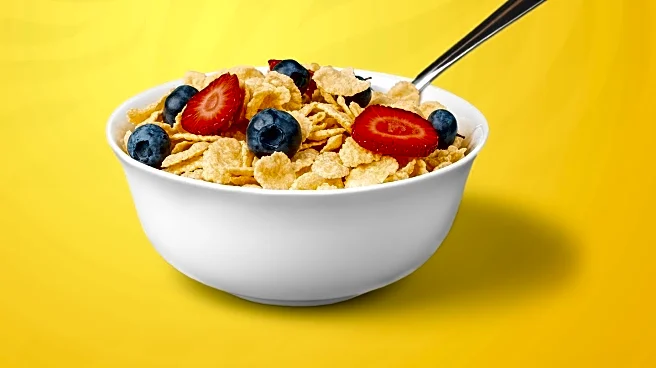What's Happening?
A study conducted by University College London has found that weight loss is possible on both ultra-processed food (UPF) and minimally processed food (MPF) diets, but the latter leads to nearly double the weight loss. Participants followed the UK's Eatwell Guide without calorie restriction, with those on the MPF diet losing 2% of their weight on average, compared to 1% for the UPF group. The study suggests that MPF diets are linked to lower energy intake and fat mass reduction. Researchers recommend prioritizing high-fiber foods and whole foods over ultra-processed options for better weight loss outcomes.
Why It's Important?
The findings highlight the potential health benefits of minimally processed foods over ultra-processed alternatives, which could influence dietary guidelines and consumer choices. As the longest experimental study of a UPF diet to date, the research provides valuable insights into the impact of food processing on weight loss and health. The study may encourage the food industry to reformulate products to reduce salt, sugar, and saturated fat while increasing fiber content. Consumers may also be motivated to choose less processed options and cook from scratch, potentially leading to healthier eating habits and improved public health outcomes.
Beyond the Headlines
The study raises questions about the role of food processing in weight management and health, suggesting that factors such as nutrient composition, texture, and eating rate may influence weight loss. Further research is needed to understand the mechanisms behind the weight changes observed in the study and to explore the long-term health implications of UPF and MPF diets. The findings may also prompt discussions on the ethical and cultural dimensions of food processing and its impact on consumer health and industry practices.








